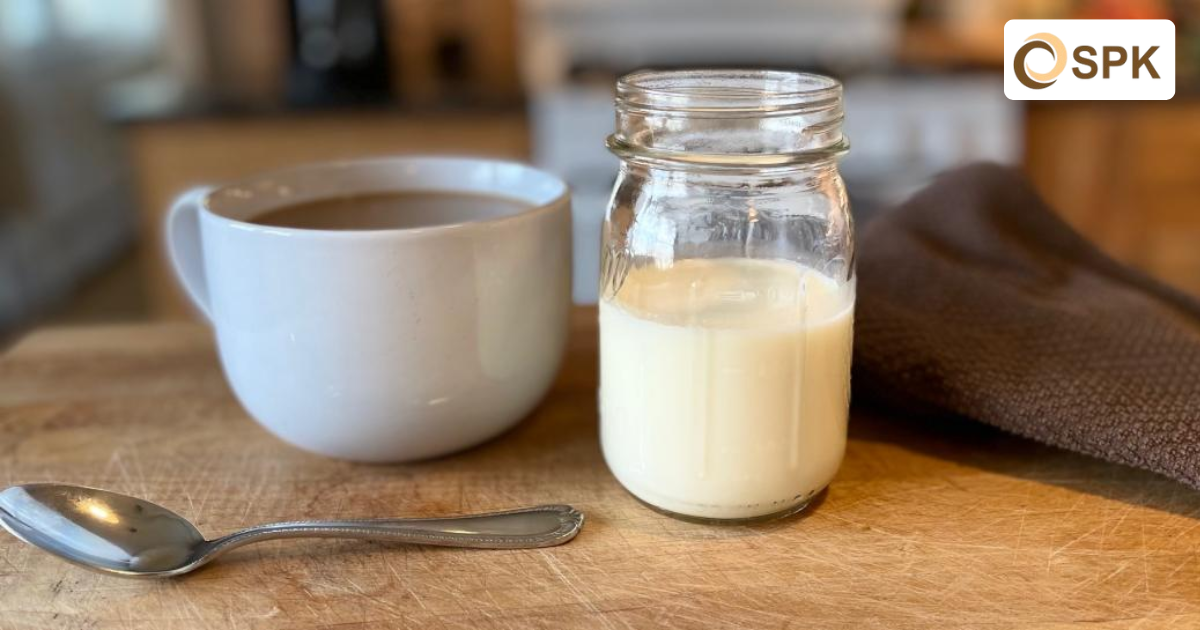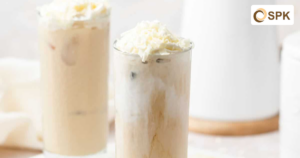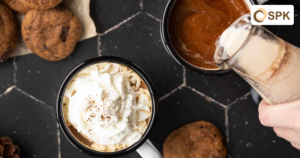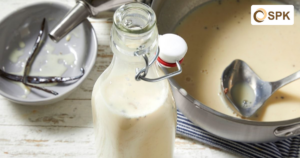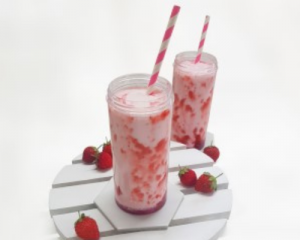Ever run out of milk at home and struggled to find a substitute? Or maybe you can’t consume milk due to allergies, lactose intolerance, or a vegan lifestyle? That’s where milk substitute creamers come in. This product isn’t just popular as a complement to coffee and tea—it’s also increasingly used in cooking and the food industry.
In this article, we’ll explore what creamer is, why many people choose it as a milk alternative, usage tips, nutritional differences compared to milk, and how to pick the right creamer for daily needs or F&B businesses.
What Is Creamer?
Creamer is a food ingredient used to add a savory taste, creamier texture, and smoothness to drinks or dishes. While it can be mixed with warm water to drink directly, its main function is as a milk substitute.
The most common example is adding creamer to coffee to soften the bitterness. Some people even use it as a substitute for coconut milk in soups. Today, creamer options are more diverse, including vegan creamers and non-dairy creamers that fit modern lifestyles.
Why Choose Creamer as a Milk Substitute?
There are several reasons why people switch to creamer:
-
Longer Shelf Life
Fresh milk lasts only about a week in the fridge, while powdered creamer can last 9–12 months when sealed at room temperature. -
More Practical & Economical
Creamers come in powdered or liquid form, making them easy to store and use. -
Alternative for Lactose Intolerance
With non-dairy creamers, those who can’t consume dairy can still enjoy creamy coffee, tea, or dishes worry-free. -
Variety of Flavors & Textures
Many creamers come in flavors like vanilla, hazelnut, or caramel, offering a different experience compared to regular milk.
Tips for Using Creamer
To get the best results:
-
Use hot water to dissolve creamer fully, unless using a cold-soluble type.
-
Always check the expiration date before use.
-
Store in a dry, cool place away from direct sunlight.
-
Seal tightly after use to maintain quality.
How to Choose the Right Creamer
Before buying, keep these in mind:
-
Choose a Trusted Brand
Make sure the creamer is registered and certified safe for consumption. -
Check the Expiry Date
If buying for long-term stock, choose products with a longer shelf life. -
Compare Prices Wisely
Prices that are too cheap may indicate low quality or fake products. -
Prefer Official Stores
When shopping online, buy from official stores to avoid counterfeit goods.
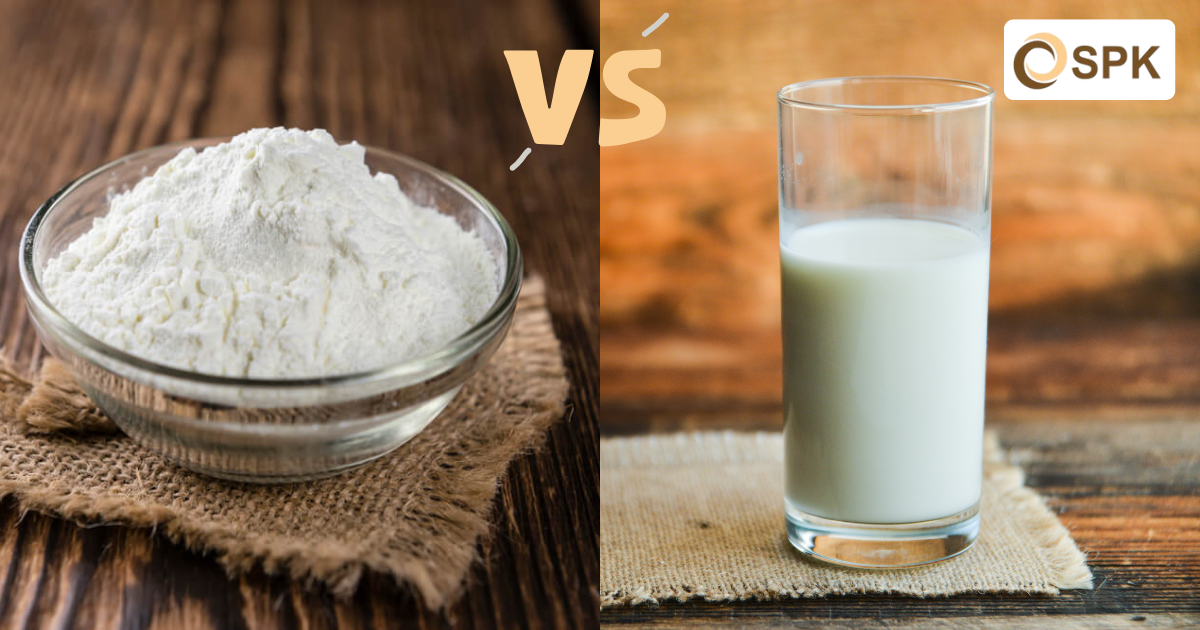
Creamer vs. Milk: Key Differences
While often used as substitutes, there are essential differences:
-
Nutrition: Milk naturally contains protein and calcium, while creamers (especially non-dairy) are lower in nutrients and usually contain added fats and sugar.
-
Composition: Milk is made up of water, protein, fat, and lactose. Creamer is made from vegetable oil, sweeteners, and additives.
-
Shelf Life: Powdered creamer lasts months, while milk lasts only days to weeks.
When to Use Creamer?
-
-
In Drinks
Add it to coffee or tea for a creamier, slightly sweet taste. -
In Cooking
Useful in soups, sauces, or baked goods. Just watch the sweetness if using flavored or sweetened creamers. -
For Special Diets
Non-dairy creamers are suitable for vegans or those with lactose intolerance.
-
Pros & Cons of Using Creamer
Pros:
-
Practical & long-lasting.
-
Wide variety of flavors.
-
Suitable for different diets.
Cons:
-
Lower in protein & calcium compared to milk.
-
Often sweeter, which may affect certain recipes.
-
Some types may clump if not dissolved properly.
Choose Quality Creamer for a Healthier Lifestyle
Creamer may not be a perfect substitute for milk, but by understanding its pros and cons, you can use it wisely. Whether to enhance your coffee, cook creamy soups, or add softness to cakes, creamer is a flexible and practical solution.
If you’re looking for Milk Substitute Creamer, Vegan Creamer, or Non-Dairy Creamer with the best quality, choose a trusted producer.
Santos Premium Krimer is Indonesia’s leading non-dairy creamer manufacturer. With years of expertise and guaranteed quality, SPK is ready to be your trusted partner for both personal needs and F&B businesses.

